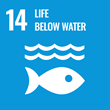Project information
Complex ecological restoration of degraded and disappearing salt marshes in Moravian Pannonia
(LIFE in Salt Marshes)
- Project Identification
- 101113725
- Project Period
- 8/2023 - 12/2029
- Investor / Pogramme / Project type
-
European Union
- Other community programmes
- Life
- MU Faculty or unit
-
Faculty of Science
- Mgr. Marie Kotasová Adámková, Ph.D.
- Luděk Adámek
- Mgr. Barbora Blažková
- Mgr. Lukáš Bobek, Ph.D.
- doc. Mgr. Jindřiška Bojková, Ph.D.
- Mgr. Júlia Buchtová
- Mgr. Ondřej Hájek
- Mgr. Kryštof Horák
- Mgr. Karel Kizek
- RNDr. Šárka Mašová, Ph.D.
- Stanislav Němejc
- RNDr. Michal Pavonič
- Mgr. Barbora Pelánková, Ph.D.
- Mgr. Jan Petružela, Ph.D.
- Mgr. Jana Petruželová, Ph.D.
- Marcela Růžičková
- Mgr. Vojtěch Sobotka
- RNDr. Lenka Šejnohová, Ph.D.
- Mgr. Vanda Šorfová, Ph.D.
- doc. Mgr. Lubomír Tichý, Ph.D.
- Mgr. Martin Vašíček
- Mgr. Zdenko Večerík
- Mgr. Sylvie Žáková, Ph.D.
- Cooperating Organization
-
Česká společnost ornitologická -
- Responsible person Mgr. Gašpar Čamlík
- Responsible person Ing. Tomáš Hejduk, Ph.D.
- Responsible person Mgr. Jan Labohý
Proposed project focuses on complex ecological restoration of 506 ha of wetlands located in the agricultural landscape of southern Moravia. This area is divided among eight project localities, each a Natura2000 site. All the project localities include remnants of priority habitat *1340 inland salt meadows, which are in a degraded and diminishing state. For the reporting period 2013-2018, the inland salt meadows got an unfavourable-bad status on both national and international level for. The project localities are threatened by massive overgrowing by expansive and invasive species, eutrophication, nutrient pollution, disruption of natural water regime, lack of management, and consequent homogenization and loss of biodiversity. Our aim is to restore and stabilize the areas with priority habitat of inland salt marches, to renew wetlands’ ecosystem functions, improve water quality and water retention, create new habitats and suitable conditions for target endangered wetland/salt meadow species, strengthen their populations and increase overall biodiversity. Complex ecological restoration will combine traditional methods of management (grazing, controlled burn-off, mowing, turf disruption) together with innovative methods (introducing semi-parasitic plant species to mitigate growth of expansive and invasive plant species, supporting wetland flora by additional targeted sowing of regional seed mixtures, or employing a method of green hay from the well-preserved wetland localities). To address the water pollution and negative effects of previous drainage, we will perform a complex hydro-chemical analysis and install close-to-nature biotechnical measures or natural small water retention measures. In order to verify the effect of project activities, we will perform a detailed biomonitoring and quantitative analysis of ecosystem services and landscape heterogeneity, before and after the project’s realisation.
Sustainable Development Goals
Masaryk University is committed to the UN Sustainable Development Goals, which aim to improve the conditions and quality of life on our planet by 2030.
Publications
Total number of publications: 8
2025
-
Příspěvek k rozšíření a ekologii vznášivky slanomilné (Arctodiaptomus bacillifer, Copepoda: Calanoida) na území Česka
Acta Musei Moraviae, Scientiae biologicae, year: 2025, volume: 110, edition: 1-2
2024
-
Analýza ekologického stavu lokalit sítě NATURA 2000 zařazených do projektu LIFE in Salt Marshes
Year: 2024
-
Complex ecological restoration of degraded and disappearing salt marshes in Moravian Pannonia
Year: 2024, type: Conference abstract
-
Ecological restoration of salt marshes in Moravian Pannonia: problems and opportunities
Year: 2024, type: Appeared in Conference without Proceedings
-
Kvalita vody a biodiverzita degradovaných slanisek moravské Panonie na počátku projektu LIFE in Salt Marshes
Year: 2024, type: Conference abstract
-
LIFE in Salt Marshes, LIFE for amphibians: Complex ecological restoration of degraded and disappearing salt marshes in Moravian Pannonia
Year: 2024, type: Appeared in Conference without Proceedings
-
Na jižní Moravě jako u moře: Příroda a kultura panonských slanisek a podobně exotických biotopů
Year: 2024, type: Requested lectures
-
New chance for inland salt marshes: restoration using traditional and innovative approaches
SERE 2024 - 14th European Conference on Ecological Restoration. Tartu, Estonia., year: 2024




